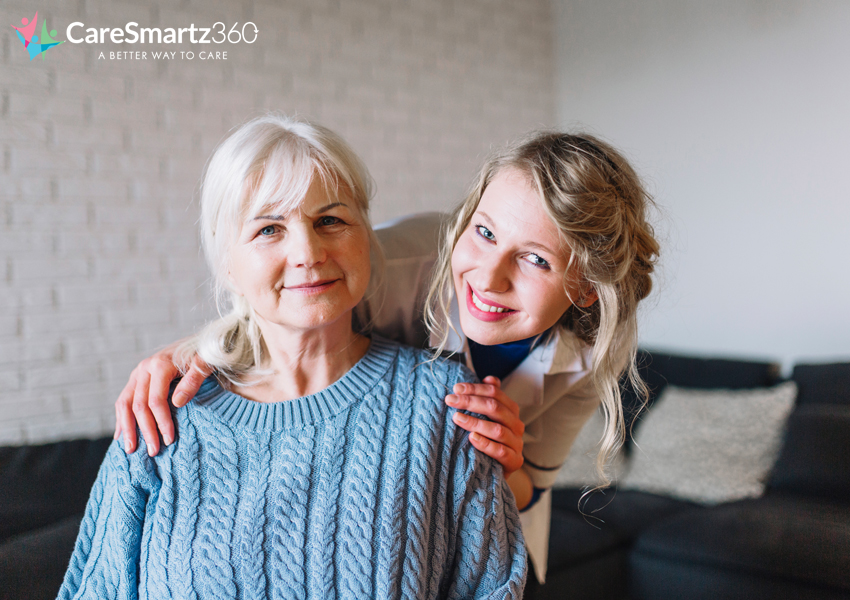Home Care Tips for Caregivers to Take Care of the Elderly

Senior living is a slow and delicate process. Like us, our elders, too, navigate the physical and psychological changes they undergo as they age. It’s no surprise that elders require assistance during their senior years but what’s important is providing holistic and quality care. It’s vital to provide care that not only caters to their physical needs but also emotional and mental needs.
This is when a professional caregiver comes in. A professional caregiver offers customized care for your loved ones. With specialized training, skills, and experience in customized caregiving, a caregiver offers seniors the kind of attention they need. To make the caregiver’s job effortless for you, here are some tips that will help to provide an excellent experience to seniors.
- Have a Sit-down Talk
What better way to start than knowing exactly what your senior client needs will be? To understand their concerns better, ask questions and have a meaningful sit-down session. Ask them what areas do they require the most assistance in? What aspects are the most difficult to adapt to? How can you, as a caregiver, contribute to making even the most challenging areas better? Answers to these will help you curate a care plan that identifies and bridges all the gaps and problem areas.Understanding a senior person’s expectations and needs gives you a better opportunity to provide them with a service tailored to their specific needs. For example, if they expect to have a lot of time on their hands, focus your services on reducing the over-complication that comes with their life. Make such sessions a routine to understand their needs and feedback overtime to make it even more effective. This conversation will keep you both on the same page and cut out any miscommunication.
- Help them Have Fun
In-home care doesn’t have to be plain and dull. Bring out the cheerful kid in them by arranging activities and social events to promote their health and happiness. Try out these activities-
- Sign them up for a club or community in the neighborhood
- Enroll them in a creative class of their choice (painting, yoga, etc.)
- Plan movie nights with their family and friends
These fun activities will boost their morale and keep them away from boredom. Determine whether or not your senior client is healthy enough to participate. Healthy participation equals happy participation!
- Find Ways to Make Disabilities Easier
Seniors getting home-care services usually struggle with walking inabilities, chronic illnesses, other disabilities, or have special needs. As a family caregiver, it is crucial to modify care plans and caregiving techniques by their health conditions. For instance, it may not be possible for a client with dementia to sign up for a weekly club; they might not remember the past activities and can find it a lot more confusing.
Design the activities and plans, keeping their condition in mind. Similarly, a lot depends on communication. If your clients are elderly, their vision might be impaired. Talk slowly, clearly, and enunciate each word. Use white index cards with high-contrast black print to communicate messages from a list. Ask them to point to the desired item if their hands shake or tremble. Similarly, they may have trouble hearing you; make sure you face them when talking and provide a pen and whiteboard for them to write notes.
- Take Some Time Out (without feeling guilty!)
Healthy habits are key to enjoying the best of your job. Your client’s health comes first, but what about yours? When you take care of yourself, you can be an effective caregiver for them. For instance, you must get enough sleep to function well. That means setting realistic work shifts and planning time away from work to relax and rejuvenate yourself. Your client won’t be able to experience the best of care if you don’t give it to yourself first. Learn how to say no, delegate, and prioritize both their needs and your own so you can enjoy the best.
Healthy practices like these will improve your caregiving and will also help you create a healthy balance between work and life. To make it easier, take 10-15 minutes out of your everyday schedule to meditate, walk, stretch or simply lie down. This will restore your energy and give you the boost you need!
- Teach them Self-reliance
It may be hard for many homebound seniors to take complete care of themselves, but with practice, you can teach them to be self-dependent in case of your absence. You can start by teaching them accessible self-care practices that do not require assistance but also are effective. For instance, meditation and breathing work do not need any external help; seniors can do it independently and are excellent for their health.
Integration of technology can also help with self-reliance. Smart devices, sensors, wearable’s, and home care management software can bring much-needed convenience and ease. Caregivers and clients can both stay updated on their schedules and other essential details. Nowadays, devices and software are designed to be navigated efficiently, which is a bonus and helps them become self-reliant.
To conclude, as seniors age, their needs and dependence will increase too. For comprehensive caregiving, make sure to keep track of their needs and also upgrade your assistance accordingly. Choose patience, love, and remember to take it one step at a time.
Related blog posts:
Make this Holiday Season Merrier for Seniors Receiving Caregiver ServicesPoints to Consider Before Hiring an In-home Caregiver for Elders

